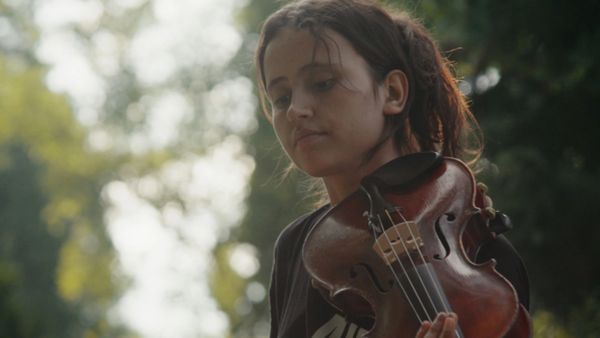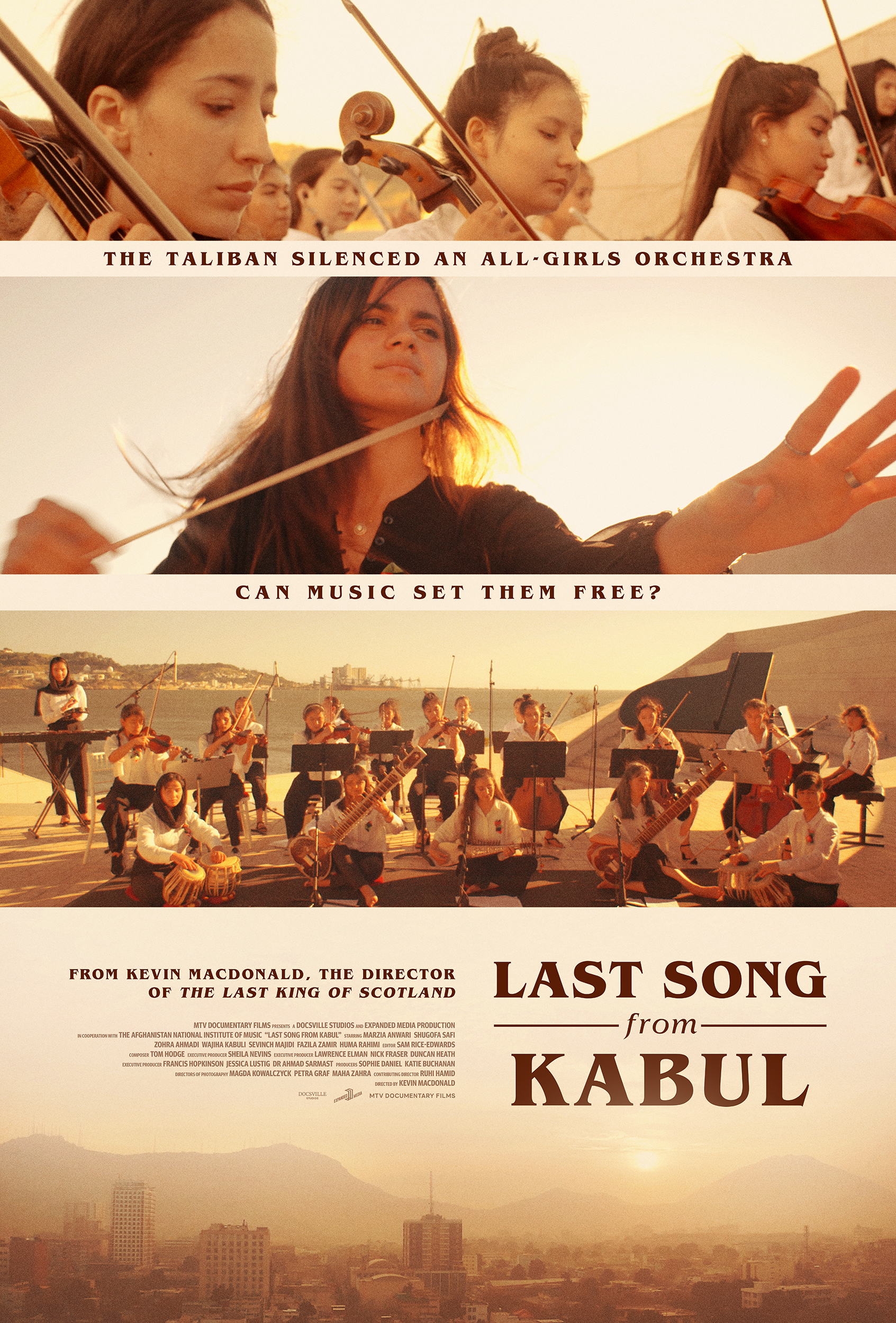Eye For Film >> Movies >> Last Song From Kabul (2023) Film Review
Last Song From Kabul
Reviewed by: Jennie Kermode

Every totalitarian regime hates people playing music – and not without reason. It inspires empathy. It brings people together. It gives people a sense of something transcendent, something beyond the everyday, and that makes them hard to control. Afghanistan is home to several rich musical traditions, but when the Taliban came to power, they declared all music un-Islamic, claiming that it caused moral decay, and banned it outright.
One person whose life was transformed by this was teenager Marzia Anwari. Kevin Macdonald and Ruhi Hamid’s Oscar-nominated documentary short tells her story, from her early days spent herding goats in a remote valley – something which could well have consumed her whole life – to her discovery of a music school and of her own hitherto unsuspected talent. What might sound like a Disney fairy tale was violently interrupted when the Taliban returned to power. Not only did they object to girls getting an education, but they tortured and killed musicians. As a member of the country’s first ever all-female orchestra, she was a prime target.
The film builds like thriller, its narrative supported by archive footage and interviews with Marzia and her fellow students. Viewers won’t take long to figure out that Marzia escaped, but her story still contains a few surprises, and it emphasises how much she lost in the process. It also draws attention to the unknown fate of other musicians all across the country, and to the distress caused, especially to rural dwellers with few other sources of pleasure in their lives, by the enforced silence. A scene in which musical instruments are aggressively destroyed leaves one in doubt as to the cruelty and unthinking malice behind this, its remoteness for any holy motive.
Music from the students’ performances provides the soundtrack to the film and a contribution to the archiving of traditional pieces now at risk of being lost forever. A more recent composition is performed at the end, allowing these teenagers, who have spoken quietly and plainly as traumatised people often do, to unleash their emotion and express their longing for the homeland they once knew.
Reviewed on: 07 Dec 2023















